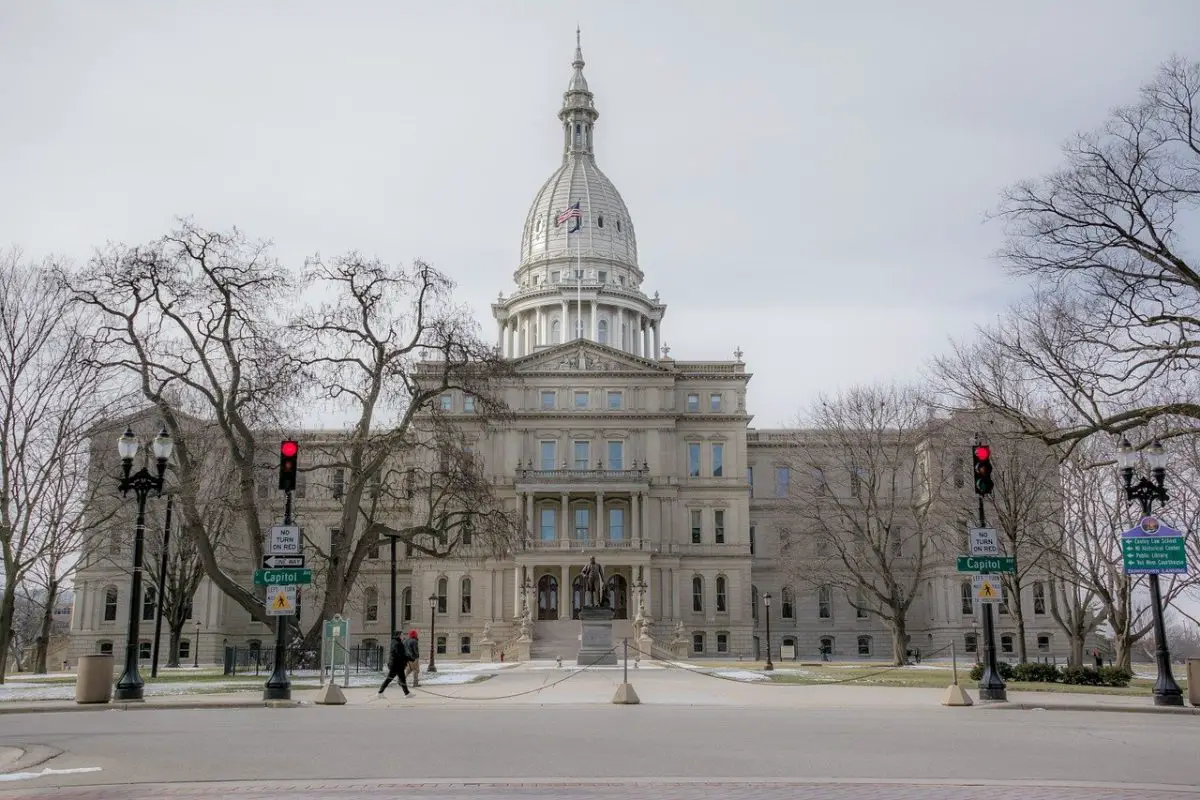The proposed 2026 Michigan Senate budget advances protections for veterans, farmers, and small businesses facing fallout from federal actions
LANSING, Mich. — June 7, 2025 — In a pointed move against the economic strain caused by federal policy shifts, Michigan Senate Democrats have passed a 2026 state budget that earmarks millions to counteract the effects of recent actions by the Trump administration. The budget, approved on May 14, is designed to insulate residents, workers, and local businesses from what state lawmakers are calling “reckless” federal decisions—chief among them, new blanket tariffs and sweeping cuts to programs like Medicaid and SNAP.
The budget includes targeted investments for veterans, small business owners, farmers, and other vulnerable groups in Michigan. A key feature is the allocation of funds through the Department of Labor and Economic Opportunity (LEO) to support sectors hit hardest by federal tariffs and staffing cuts in federal agencies.
State Budget Aims to Counter Tariff Fallout on Michigan Economy
The budget legislation highlights urgent funding to help Michigan industries adapt to increased material costs and the economic ripple effects of protectionist trade policies. Among the state’s biggest concerns: federal tariffs driving up prices for imported construction materials and agricultural supplies, which jeopardize both infrastructure projects and farm exports.
To that end, the LEO budget includes funding for tariff impact research, workforce retraining, and support for retooling operations in Michigan manufacturing and farming. These measures aim to cushion the local economy and prepare businesses for long-term changes.
“As Chair of the Appropriations Subcommittee on LEO and MEDC, I’ve made intentional efforts to ensure the hardworking people, nonprofits, and small businesses who call our state home have the support they need to navigate these unprecedented times,” said Sen. Mary Cavanagh (D-Redford Twp.), referencing the widespread effects of Trump’s new economic directives.
Support for Veterans Laid Off by Federal Downsizing

One of the most direct consequences of the federal workforce cuts—under the newly formed “Department of Government Efficiency”—has been job losses among veterans and civilian workers. The Michigan Senate budget includes direct financial assistance and employment support for these groups.
Sen. Sarah Anthony (D-Lansing), who chairs the Senate Appropriations Committee, said the state budget reflects core values absent in federal policy. “Our budget puts Michiganders first. We invest in our communities, protect the vulnerable, and fight every day to build a future where opportunity isn’t reserved for the wealthy few, but shared by all,” Anthony said.
Food Assistance, Libraries, and Due Process Protections on the Line
The budget sets aside resources to offset expected cuts to SNAP benefits, AmeriCorps programs, and public access services such as the Michigan Electronic Library System, which is targeted by a Trump executive order eliminating the Institute of Museum and Library Services.
The budget also includes provisions to safeguard the due process rights of immigrants and naturalized citizens, which may be undermined by recent changes in federal immigration enforcement and naturalization procedures.
Political Impasse Threatens Timely Budget Finalization
Despite the Senate’s early passage of the budget, no significant movement has occurred in the Republican-controlled House, led by Speaker Matt Hall. The delay puts Michigan at risk of facing cascading consequences from federal program cuts, with the state’s July 1 deadline looming.
The impasse reflects deep political divisions over how to respond to federal rollbacks in healthcare, food aid, and labor programs. Democrats argue that inaction could leave Michiganders exposed just as Washington escalates its cost-cutting agenda.
Related Context: Rising Concerns Over Trump Economic Agenda
Since returning to office in January, President Donald Trump has moved swiftly to enact tariffs and dismantle social welfare initiatives. His economic strategy, including cuts to Medicaid and student loan forgiveness, has drawn sharp criticism from state leaders who say such moves hit working families the hardest.
The Michigan Senate budget is one of the first significant state-level attempts to buffer residents from this wave of federal austerity, framing the budget as both a fiscal document and a political statement of resistance.
Read More Interesting Feature Stories From ThumbWind
- Michigan Feature News Stories – Unveiling the diverse and vibrant people, captivating places, and remarkable events that come together to make the Great Lake State unique.
- Strange Political News – A sarcastic take on official news from around the U.S., exploring the absurdities that often arise in the political landscape while providing a humorous perspective on current events and highlighting the quirks of politicians and policies.
- Michigan Hometown News – News and events from Michigan’s Upper Thumb region worth knowing, including local stories, impactful interviews, and updates on community happenings that shape the culture and lifestyle of the area.
Your Turn – Like This, or Hate it – We Want To Hear From You
Please offer an insightful and thoughtful comment. We review each response. Follow us to have other feature stories fill up your email box, or check us out at ThumbWind News .




